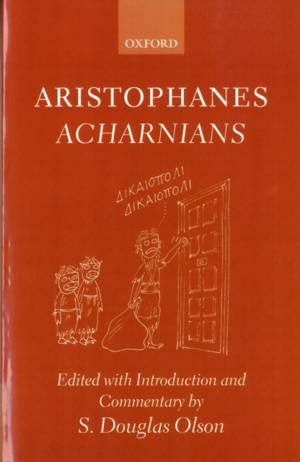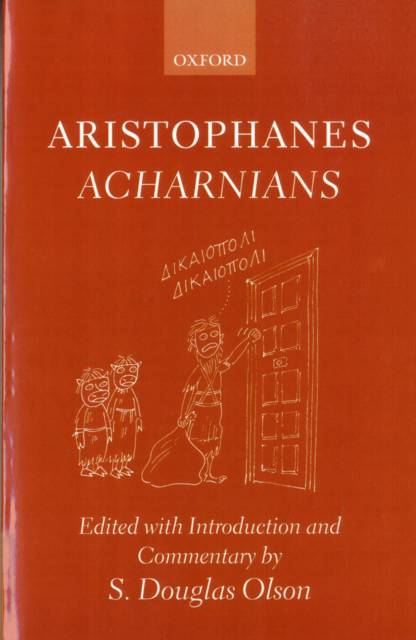
Bedankt voor het vertrouwen het afgelopen jaar! Om jou te bedanken bieden we GRATIS verzending (in België) aan op alles gedurende de hele maand januari.
- Afhalen na 1 uur in een winkel met voorraad
- In januari gratis thuislevering in België
- Ruim aanbod met 7 miljoen producten
Bedankt voor het vertrouwen het afgelopen jaar! Om jou te bedanken bieden we GRATIS verzending (in België) aan op alles gedurende de hele maand januari.
- Afhalen na 1 uur in een winkel met voorraad
- In januari gratis thuislevering in België
- Ruim aanbod met 7 miljoen producten
Zoeken
Omschrijving
Aristophanes' Acharnians was performed at the Lenaia festival in Athens in 425 BCE. The play is the story of an old peasant farmer, Dikaiopolis, who has grown so disgusted with the Peloponnesian War and the patent self-serving of the city's leading politicians (abetted by the stupidity of his fellow-citizens) that he concludes a separate peace with the enemy. As a result, he gains access to an immense supply of wonderful things, including wine, eels, thrushes, and a pair of beautiful and compliant women. Whether he is a traitor and a villain, or simply the cleverest and most daring man in the city, is a matter of extensive debate within the play. Acharnians itself, at any rate, took first place and is generally regarded as one of Aristophanes' two or three most brilliant surviving comedies. Olson offers the first complete new scholarly edition of the play in almost a century. The text and apparatus are based on a fresh examination of the papyri and manuscripts, many of which have never been studied systematically, and are supported by a new manuscript stemma. The Introduction contains sections on the poet himself; the historical setting and political argument of the play; the mythological and literary background; division of parts, costumes, and props; staging; the use of dialects; and the history of the text. The commentary covers a wide range of literary, historical, and philological issues, with particular attention to staging and details of everyday life. All Greek in the introduction and commentary not cited for technical reasons is translated, making much of the edition accessible to general scholarly readers.
Specificaties
Betrokkenen
- Auteur(s):
- Uitgeverij:
Inhoud
- Aantal bladzijden:
- 484
- Taal:
- Engels
Eigenschappen
- Productcode (EAN):
- 9780199275861
- Verschijningsdatum:
- 14/10/2004
- Uitvoering:
- Paperback
- Formaat:
- Trade paperback (VS)
- Afmetingen:
- 149 mm x 215 mm
- Gewicht:
- 594 g

Alleen bij Standaard Boekhandel
+ 402 punten op je klantenkaart van Standaard Boekhandel
Beoordelingen
We publiceren alleen reviews die voldoen aan de voorwaarden voor reviews. Bekijk onze voorwaarden voor reviews.









